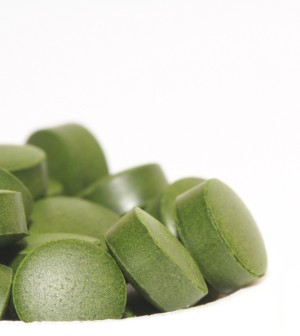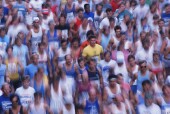- 8 Ways to Increase Dopamine Naturally
- 7 Best Breads for Maintaining Stable Blood Sugar
- Gelatin vs. Collagen: Which is Best for Skin, Nails, and Joints?
- The Long-Term Effects of Daily Turmeric Supplements on Liver Health
- Could Your Grocery Store Meat Be Causing Recurring UTIs?
- Are You Making This Expensive Thermostat Error This Winter?
- Recognizing the Signs of Hypothyroidism
- 10 Strategies to Overcome Insomnia
- Could Artificial Sweeteners Be Aging the Brain Faster?
- Techniques for Soothing Your Nervous System
Healthy Eating Can Help Marathoners Cross Finish Line


SUNDAY, Oct. 20With the New York City Marathon just two weeks away, a sports diet expert advises runners that proper nutrition and hydration are crucial for anyone training for the Nov. 3 race.
Long-distance runners are at risk for low bone density, stress fractures and irregular periods, so it’s important for them to provide their bodies with enough energy to achieve peak performance and prevent injuries, said Brooke Schantz, a registered dietitian and board-certified specialist in sports dietetics at Loyola University Health System in Maywood, Ill.
She offers this simple way for runners to calculate their caloric needs:
- Between 30 and 60 minutes of activity a day requires 16 to 18 calories per pound of body weight.
- One to one and a half hours of activity a day requires 19 to 21 calories per pound.
- One and a half to two hours of activity a day requires 22 to 24 calories per pound.
- Two to three hours of activity a day requires 25 to 30 or more calories per pound.
It’s also a good idea to consult a registered dietitian for a tailored nutrition plan, Schantz said.
Some of her other suggestions:
Avoid high-fiber foods the night before and the morning of the race. Eating these types of foods — such as high-fiber cereals, grains, granola bars, fruits and vegetables — could result in intestinal distress and cramping on race day.
Monitor your sweat loss and weigh yourself before and after long runs. For every pound lost during a run, replace it with 16 ounces of water. Monitoring urine color is a good way to assess hydration levels. The clearer your urine, the more hydrated you are.
Consume 30 to 60 grams of carbohydrates every hour when exercising more than one hour. They can be consumed on the move in different forms, including gels, jelly beans, sports drinks, sports bars or a combination thereof.
Carbohydrate loading before a marathon can help improve performance. Some carbo-loading plans start six days before a race, but even beginning a high-carb diet the day before the race can help maintain a high-intensity run.
Protein also is important for increasing lean muscle mass and aiding in muscle repair. Endurance athletes require 1.2 to 1.4 grams for every 2.2 pounds per day.
Be sure to practice a nutrition and hydration schedule ahead of the marathon. Race day is not the time to try out new foods and beverages.
More information
The Cleveland Clinic has more about marathon preparation.
Source: HealthDay
Copyright © 2026 HealthDay. All rights reserved.










